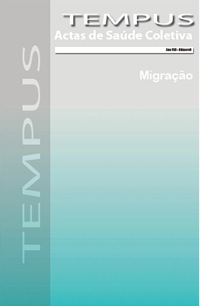Abstract
It is an integrative review, with a qualitative approach, with a historical focus between 2008 and 2018, which aims to understand the nature of migration policies adopted in the European context and to identify to what extent they have a protective character to migrants. With this, the aim is to apprehend the theoretical and political perspectives in force and to subsidize the construction of strategies capable of guaranteeing the human rights of migrants. The databases adopted were: ERIC, PubMed, Dianet, Springlink and Scopus. Only articles in Portuguese, English and Spanish were included for reading. The sample consisted of 17 articles. Studies have shown that the creation of policies that regulate labor migration is the major focus of interest for countries, since it establishes selection mechanisms favorable to domestic labor markets, with a tendency to absorb: a) “brains” - labor highly qualified - and b) cheap labor, incorporated in domestic services and civil construction. Regarding migration control policies, the legislation found refers mainly to the adoption of strategies to restrict “unwanted” flows, detention and expulsion of migrants, as well as the use of ICTs for identification and control of borders. In relation to asylum policies, it is noted that all of them had a protective character, signaling that, in terms of refuge, there seems to be greater protection compared to economic migration. Finally, the results show paradoxical dynamics, given that the European Union has a tendency to elaborate punitive policies while countries in isolation are more likely to protect migrants and guarantee human rights.

